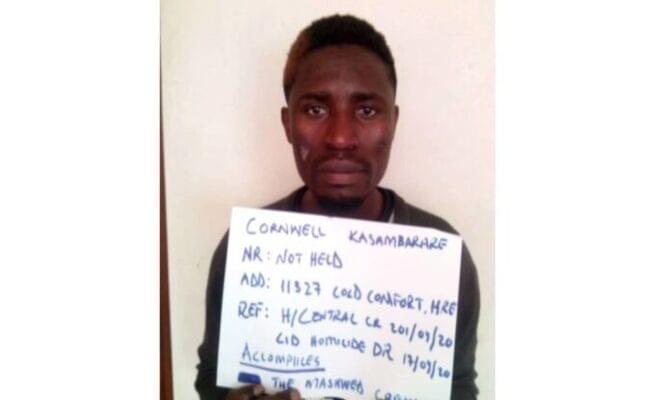Cornwell Junior Kasambarare, who was one of the most wanted suspected robbers in Zimbabwe, has been arrested. Kasambarare was believed to be the mastermind behind a series of armed robberies, including the well-known Mashwede Holdings heist and various housebreaking cases in Harare.
He was allegedly a part of Musa Taj Abdul’s criminal gang and had disappeared after being released on bail in 2021. He was arrested in the city and is currently in police custody, assisting with investigations.
Kasambarare’s accomplice, Spicer Takawira, was previously arrested in 2021 for housebreaking and theft and has been in custody ever since.
Police had been searching for Kasambarare as he had an outstanding warrant of arrest for skipping bail and defaulting court. Kasambarare, Takawira, and three others were accused of seven cases of housebreaking and theft in Harare, including the Mashwede Holdings heist in March 2020, where they got away with over US$100,000, R42,000, $14,000 worth of fuel coupons, firearms, and 20 live rounds of ammunition.
With Takawira and Leo Mandaza in custody, police had been appealing for information that could lead to Kasambarare’s arrest. Mashwede Holdings had previously been hit by armed robbers, and police had been searching for four robbers involved in the second Mashwede attack, where they raided a Mashwede Holdings food court and two other premises in Southlea Park, Harare, and got away with a Mitsubishi double cab and over US$5,000. The vehicle was later found dumped in Nyatsime, along with the safe containing the stolen cash.
The robbers had attacked two security guards and tied their hands with shoelaces before breaking into a butchery and stealing US$290 and electrical appliances from a mini-market at the premises. They then proceeded to Chicken Mash owned by Mashwede Holdings and forcibly broke the aluminium doors with a hammer before attempting to break into a safe containing cash. They failed to break the safe and loaded it onto the Mitsubishi truck, which they later dumped
Source MyZimbabwe










